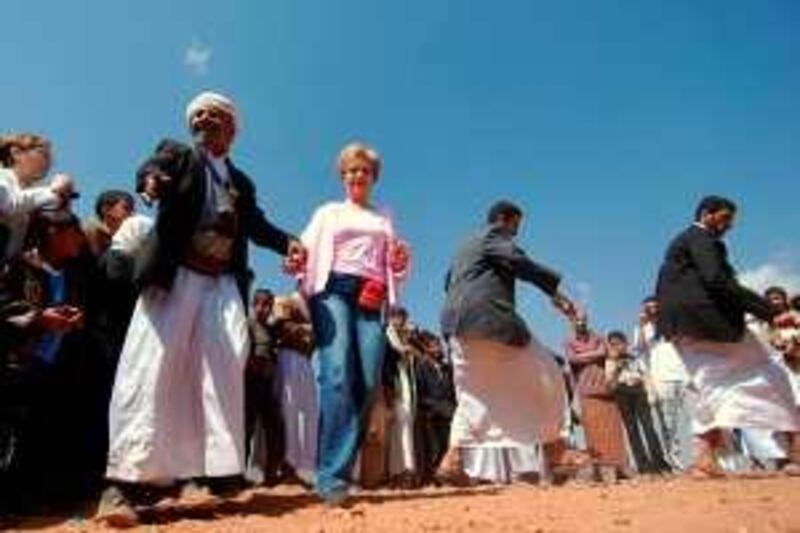SANA'A // Yemen's Shiite insurgents yesterday affirmed they are committed to a truce to end their bloody six-year rebellion a day after the government accused them of breaching the ceasefire. Abdul Malik al Houthi, the leader of the Houthi militants, denied in a statement on their al Menpar website that they attempted to assassinate Mohammed al Kawsi, the deputy interior minister, a few hours after the ceasefire came into effect on Thursday night.
"This [assassination attempt] is not true and war mongers are those behind such kind of things - The situation is calm and that is broadly visible in all the areas of Sa'ada and other regions but war mongers do not like peace and stability and seek to [carry out] such kind of breaches," the statement said. "Mr Abdul Malik al Houthi seeks to end this issue completely and the state should do that. War does not serve Yemen - we are committed to the truce and six-point condition set by the government," the statement said.
The breaches were reported on Friday morning when one soldier was killed and seven wounded outside the northern city of Sa'ada. The government immediately blamed the Houthis. The rebels, however, downplayed the incidents, saying in the statement "those were minimal violations that it is possible to overcome. They take place in every war." After six months of fierce fighting, Yemen's government and rebel leader agreed late on Thursday to a truce that began at midnight.
The government's conditions included the Houthis' withdrawal from official buildings and abandoning military posts in the mountains, reopening roads, returning weapons seized from security services and freeing all military and civilian prisoners, including Saudis. They also agreed to respect the law and the constitution, and pledged not to attack Saudi Arabia. Saudi troops joined the fighting in November after accusing the rebels of killing a border guard and occupying two small villages.
Members of the committees overseeing the implementation of the conditions arrived in Sa'ada province and Harf Sufian district in the neighbouring Amran province on Friday. But the government said the rebels had failed to name their representatives in these committees. It also accused the Houthis of not meeting other commitments, including opening up roads, handing over captured Yemeni and Saudi soldiers and allowing the Yemeni army to deploy along the country's border with Saudi Arabia.
The rebels, who have been fighting a sporadic war against the government since 2004, said they had pulled out of an occupied airport in the north. "Today, we carried out our withdrawal from the perimeter of the airport of [the city of] Sa'ada, where a plane will land for the first time [since August]," Mohammed Abdel Salam, a rebel spokesman, told the news agency AFP. He said the insurgents had began to dismantle roadblocks in the north and were on the verge of handing over the Saudi prisoners, captured in border clashes that began last November, to Ali Nasser Qarrsha, a tribal official from Sa'ada acting as a mediator between the two sides.
Mr Salam did not say how many prisoners the rebels were holding, how many would be freed, or the exact time or date of the expected release. Ali bin Ali al Qaisi, chief of the committee that would oversee implementation of the ceasefire conditions in al Malahidh region described the situation as calm. "We have not reported any breaches from both sides. There is a commitment to ceasefire," Mr al Qaisi told The National by phone.
He said that names of the Houthi representatives of the ceasefire committee had been submitted but had not shown up yet. "We have received the names but we are waiting for the representatives. We are optimistic," Mr al Qaisi said. Intermittent fighting between the two sides has killed and wounded thousands and left 250,000 homeless. The government has accused the rebels of seeking to restore the Zaidi Shiite imamate that ruled in Sana'a until its overthrow in a 1962 republican coup that sparked eight years of civil war. The rebels, however, complained of social, religious and economic discrimination.
malqadhi@thenational.ae






